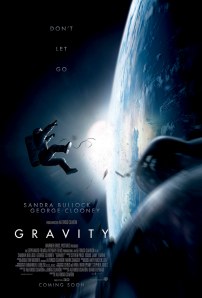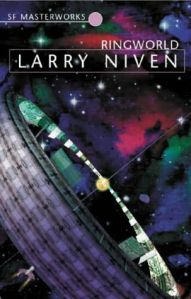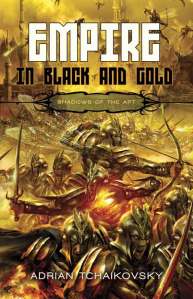On ZDNet, Simon Bisson offers up a cool list of “26 essential science fiction novels to get you ready for tomorrow.” It’s a great list, with works by Vinge, Brunner, Sterling, Stross, Naam, Stephenson, Nagata and others… though in a couple of cases I am a bit biased.
An interesting article asks10 science-fiction, speculative fiction, urban fantasy and dystopian authors to answer a single question: What will the next 10 years bring?
How about a museum for the future? Actor John Rhys-Davies spends less than one minute entertainingly haranguing us all to support the new Museum of Science Fiction, planned for Washington DC!
Isaac Asimov reads aloud his short story "The Last Question" in one sitting. It appeared in the November 1956 issue of Science Fiction Quarterly and Asimov said it was "by far my favorite story of all those I have written."
Here’s a cute rumination. You are offered eight different – mutually exclusive – superpower pills....Would you take the red pill, the blue pill, or the black pill? This notion is turned into a fun little story by Scott Alexander.
An interesting report on the increasing number of Native American and First Nations characters showing up as comic book superheroes.
An interesting report on the increasing number of Native American and First Nations characters showing up as comic book superheroes.
==What Comes Next? ==
Who Will Inherit the Earth? David Tormsen offers an interesting rumination on who — or what — might replace humanity, someday. Here’s an excerpt that interests me, for obvious reasons:
"Uplifted Animals —The idea of raising animal species to human intelligence is an old one that dates back to H.G. Wells’s The Island of Dr Moreau. Cordwainer Smith imagined uplifted animals as an oppressed underclass fighting for their rights, while David Brin’s Uplift series presented a universe where almost all intelligent creatures owed their sapiency to patron species, with humanity exploring the universe with intelligent apes and dolphins at its side....
"Uplifted Animals —The idea of raising animal species to human intelligence is an old one that dates back to H.G. Wells’s The Island of Dr Moreau. Cordwainer Smith imagined uplifted animals as an oppressed underclass fighting for their rights, while David Brin’s Uplift series presented a universe where almost all intelligent creatures owed their sapiency to patron species, with humanity exploring the universe with intelligent apes and dolphins at its side....
 Some theorists, such as George Dvorsky, argue that we have a moral imperative to raise other species to our level of intelligence once we possess the technological means to do so. Dvorsky points to modern efforts to have great apes be granted the legal right of “personhood,” and he asserts that the natural next step would be to give non-human animals the cognitive faculties for self-determination and participation in a society of sentient creatures. The human monopoly on sentient thought gives us an unfair and unjust advantage over our animal neighbors, and if the means exist to allow non-humans like apes, dolphins, and elephants to achieve the cognitive means of political participation, it is our moral duty to extend it to them."
Some theorists, such as George Dvorsky, argue that we have a moral imperative to raise other species to our level of intelligence once we possess the technological means to do so. Dvorsky points to modern efforts to have great apes be granted the legal right of “personhood,” and he asserts that the natural next step would be to give non-human animals the cognitive faculties for self-determination and participation in a society of sentient creatures. The human monopoly on sentient thought gives us an unfair and unjust advantage over our animal neighbors, and if the means exist to allow non-humans like apes, dolphins, and elephants to achieve the cognitive means of political participation, it is our moral duty to extend it to them."
David Tormsen continues, “Others disagree. Alex Knapp believes that the costs in terms of animal life would be too high to justify it. In order to uplift a species, it would be necessary to make changes to the DNA on an embryonic level, leading to inevitable failed attempts before we got it right. Then there is the question of how to ensure that a successfully uplifted embryo would be gestated. Such experimentation would be morally wrong, with the potential for intelligent animals suffering physical abnormalities and early death due to human meddling. Even if successful, human beings would have no way to cope with the social and emotional needs a sapient chimpanzee, bonobo, or parrot would have. In other words, uplifted animals could be left emotionally traumatized due to ham-handed attempts by humans to raise them. Some also worry that problematic aspects of certain species’ natures, such as chimpanzees’ violence and dolphins’ inclination for rape, would carry on into their intelligent forms. Some argue that intelligent self-awareness is an ecological niche that can only sustainably hold a single species, explaining why the Neanderthals and our other human cousins were wiped out …and assimilated. Creating intelligent animals could create evolutionary competition for humanity by potentially traumatized creatures with mental processes and value systems that we may not even be able to comprehend.”
Huh. A balanced two paragraph cover on the idea. Still. George is right. Not only is it worth the risk, the worst thing we could do is ban such endeavors so that they will be done anyway, but in secret -- and therefore stupidly -- exactly the Crichton scenario I depicted in EXISTENCE.
An interesting bio-piece on Peter Thiel - law professor, libertarian philosopher and investor: “One way you can describe the collapse of the idea of the future is the collapse of science fiction,” Thiel said. “Now it’s either about technology that doesn’t work or about technology that’s used in bad ways. The anthology of the top twenty-five sci-fi stories in 1970 was, like, ‘Me and my friend the robot went for a walk on the moon,’ and in 2008 it was, like, ‘The galaxy is run by a fundamentalist Islamic confederacy, and there are people who are hunting planets and killing them for fun.’ ”
And sure, Thiel's both brilliant and insightful -- especially about the plague of dozoisian angst that has festered in science fiction for decades, sneering at a now-seldom-seen can-do spirit. Still, he also misses the point. We progress by both believing we can solve problems and by relentlessly pointing out problems to solve.
The real sin of the angst-merchants is not their wanting to issue warnings. It is the boringly-tedious sameness and lack of originality of their jeremiads.
The real sin of the angst-merchants is not their wanting to issue warnings. It is the boringly-tedious sameness and lack of originality of their jeremiads.
In contrast -- somewhat -- a subset of science fiction called “Cli-Fi” concentrates on tales about the effects of climate change. Dan Bloom, long a promoter of this trend, writes here about the growing number of academic/pundit voices who are using the term. Early examples go back to E. M. Forster's The Machine Stops (1909) and J.G. Ballard's The Drowned World (1962); more recent Cli -Fi novels include Paolo Bacigalupi's The Wind-up Girl, my own Earth, Kim Stanley Robinson's Forty Signs of Rain, Ian McEwan's Solar, Barbara Kingsolver's Flight Behavior, John Barnes's Mother of Storms, Stephen Baxter's Flood, and Margaret Atwood's The Year of the Flood -- all charting possible, often dire, environmental scenarios to come.
Femismo? It's the proper name of an entirely different view of sexual relations that aims not (as feminism does) at equality, but at altering the status quo in definitely unequal ways. Perhaps for the better! I am willing to read solidly delivered arguments that male dominance should not just be eliminated, but reversed into female dominance! There is a very strong femismo literary tradition in SF. Here's a rumination that would certainly solve the "problem of maleness." But this goes too far... Humanity should be 90% female? Fortunately, most of this person's commenters are offended. Still, given the blotchy record of male dominance, one can hardly blame some for fantasizing...
I did something similar in GLORY SEASON... only I portrayed it being done without violence or apocalypse or rancor, simply with some mild tweaking of reproductive processes — (most of the year, women only conceive their own clones) — not castration! Seriously, see how it plays out! The important thing is that SF should be about gedankenexperimentation (thought experiments) -- and uncomfortable ones too! So long as they are done in a spirit of vigorous exploration and plausability and a sense of ultimate justice.
== Brin-news ==
 My second short story collection, Otherness, is now back in print -- with a beautiful cover by Patrick Farley -- and some of my best stories including Dr. Pak's Preschool, Detritus Affected, The Giving Plague, Piecework, and Sshhh...
My second short story collection, Otherness, is now back in print -- with a beautiful cover by Patrick Farley -- and some of my best stories including Dr. Pak's Preschool, Detritus Affected, The Giving Plague, Piecework, and Sshhh...
A new audio version of my first story collection The River of Time, beautifully narrated by my friend, actor Stephen Mendel, is now available on Audible, Amazon and iTunes. The River of Time was also recently re-released in print and ebook formats.
And, I have a new... third short story collection - the best yet - to be released soon!
And, I have a new... third short story collection - the best yet - to be released soon!
== Sci Fi Snippets ==
The original movie script for 2001. Fascinating. It includes some different lines and includes the narration that Kubrick later dropped.

Christian Cantrell has released a new work of Hard SF: Equinox, a sequel to his earlier Containment, also works as a stand-alone novel. Equinox portrays a dystopian future with a bifurcated humanity: tensions boil over between a dwindling population who remain living in habitats on an environmentally devastated Earth and the Coronians, space-born descendants of scientists and engineers who were stranded aboard the orbiting ring station Equinox, when a planet-wide catastrophe struck. Their symbiotic inter-dependence - trading Space-Based Solar Power for land-based resources to be used in Molecular Assemblers -- is threatened when the Coronians upset the fragile balance of power with a desperate act...
A Chinese gaming and mobile Internet company has built its headquarters in the style of the USS Enterprise.
“Five one-hit wonders of science fiction!” a cool rundown on YouTube by Tony Smith of StarshipSofa.
Order your Ray Bradbury bookends – made from wood salvaged from Ray’s recently torn-down Cheviot Hills home.
The Second International Congress on Love and Sex with Robots will be held November 16th, 2015 | Advances in Computer Entertainment (ACE) 2015, Iskandar, Malaysia.
Someone wrote in to ask if the old “Brin-L” discussion group still exists. If so, it is one of the oldest communities on the web! I did find the still active cover page … http://brin-l.com/ (That’s an “L”.) Anyone care to try and join and see what happens? Report back!
Beyond Time - a free Science Fiction writing contest open for submissions. Accepting old and new stories of any length, both published and unpublished. Authors retain all rights to any and all works submitted in the contest.
Beyond Time - a free Science Fiction writing contest open for submissions. Accepting old and new stories of any length, both published and unpublished. Authors retain all rights to any and all works submitted in the contest.























